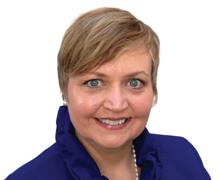I’ve taken the road less travelled in my career, and as poet Robert Frost famously wrote, “That has made all the difference.” My career, nearly half of it spent overseas, was not a steady advancement, but a variety of experiences that led to greater adventures. Initially, I did not know what I wanted to do, but I knew the things I loved to do: communicate, connect, and explore cultures.
I was given opportunities to start typical entry-level career tracks in the U.S., but they couldn’t compare to a serendipitous opportunity I was given to move back to Taiwan (where I had spent a semester studying) to be editor at a local publishing and PR firm. There, I came to appreciate the positive impact global trade and business could have on people’s livelihoods around the world, and chose to pursue my MBA.
Again, rather than interviewing for typical post-MBA jobs my classmates pursued after graduation, I was inspired by an opportunity with Business Week magazine where I could do what I love and contribute a lot doing it. During my seven years there, marketing emerged as my practical strength. After all, marketing is comprised of communicating, connecting (customers to companies), and exploring “cultures” (the different audiences or “tribes” as marketing guru Seth Godin calls them).
From there, my career path was more typical in that I was now a marketer. I made steady progress, yet still I chose nonconforming opportunities. My unconventional approach to my career proved to be more important than I even realized, for one simple reason: No one cares more about your career, or your fulfillment than you do. Your career is not just a series of goals; it is actually about the journey in between those goals. If you’re not thriving on the course you are on, you will not improve, nor will your company.
I’ve applied this learning to how I lead people, too. It’s simple: When people are meant to work at their jobs, they perform better. I’ve focused on aligning people’s strengths and passions to fills gaps and needs in an organization. This reflects the way I used my love for communicating, connecting, and exploring cultures to find a workplace where I could contribute greatly.
How has education affected your career?
My education was not about deep learning of the subjects, but being exposed to the range of disciplines that, combined, make businesses operate. Poetry, statistics, and sociology all unwittingly and equally prepared me to address the complexities of business.
What does it take to succeed and stay competitive in your position/field?
Adaptability. Marketing is one of the fastest-changing functions, with dramatic shifts occurring in how we engage with customers and prospects brought about by a connected, social, and mobile world.
Is there a role model who has had a profound impact on your career and/or life?
What did he/she motivate you to do? I find role models for whatever it is I’m trying to accomplish. They may be executives in similar roles, an expert in a certain field, or just amazing people doing spectacular things. My needs and goals keep changing as I grow, and different people continue to inspire me.







